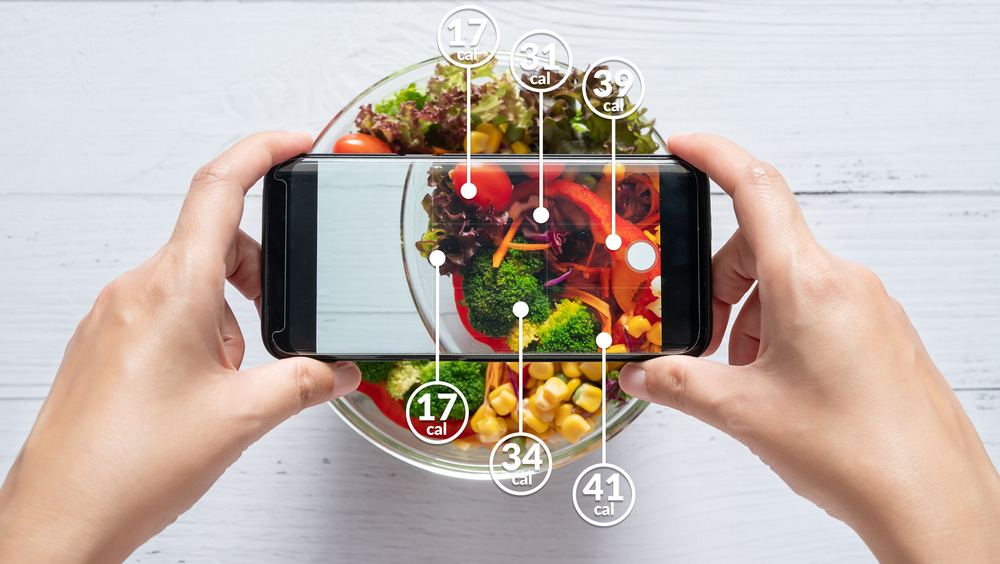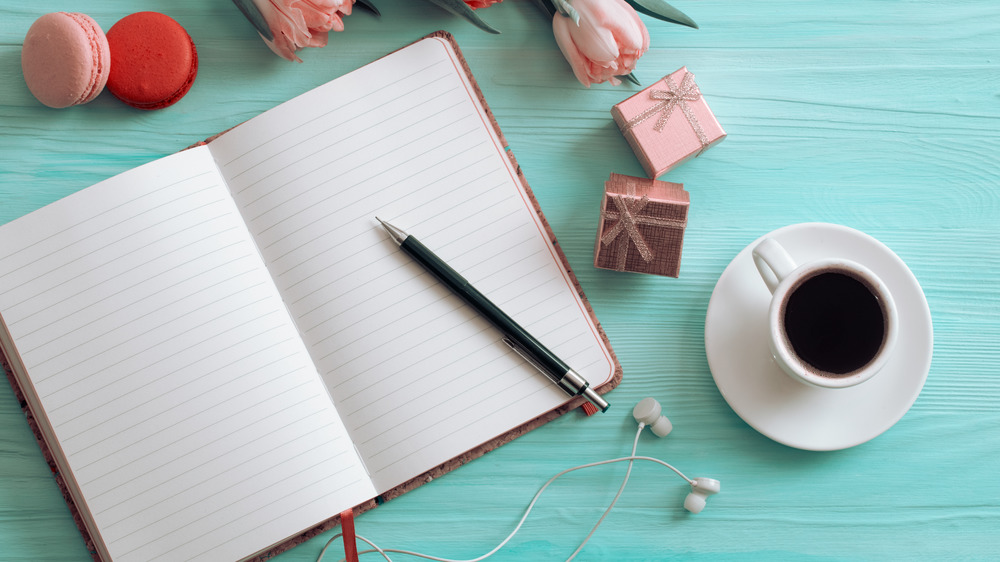Does Keeping A Food Diary Really Work?
If you've ever struggled to lose weight, it might be a lack of information that's slowing down the process. Food journaling, or keeping a food diary, whether it's on paper or in an app on your smartphone may be more helpful than you'd expect.
A 2008 study published in the American Journal of Preventive Medicine found that people who wrote down what they ate were twice as likely to lose weight. "The more food records people kept, the more weight they lost," lead author Jack Hollis, Ph.D., said in the study's press release. "It seems that the simple act of writing down what you eat encourages people to consume fewer calories."
In 2019, the Obesity journal published similar new research that found that regular — as in, after each meal — food-loggers were more likely to be successful in their weight loss goals compared to those who skipped recording their meals, or recorded less frequently. There are a few factors that make a food diary work. First, it keeps you accountable to yourself. Second, it can also give you a lot of information about your habits around food, your triggers, your tendencies, and where you struggle the most, which can help you create better habits instead (via Good Housekeeping).
How should you keep a food diary?
Similarly, research done at the Fred Hutchinson Cancer Research Center in 2012 found that women who kept a food diary lost an average of six pounds more than those who did not keep one. "For individuals who are trying to lose weight, the number one piece of advice based on these study results would be to keep a food journal to help meet daily calorie goals. It is difficult to make changes to your diet when you are not paying close attention to what you are eating," said the head researcher, Anne McTiernan, M.D., Ph.D, in a press release (via the Fred Hutchinson Cancer Research Center).
Your food diary doesn't have to be fancy. Sure, you can use an app that lets you photograph your food or records every detail, or you can invest in a smart food scale for more accurate measurements, but even just jotting down what you're eating in on paper will help. "Any notebook or pad of paper that is easily carried or an online program that can be accessed any time through a smart phone or tablet should work fine," McTiernan noted. So decide what will work best for you, and give it a try.


